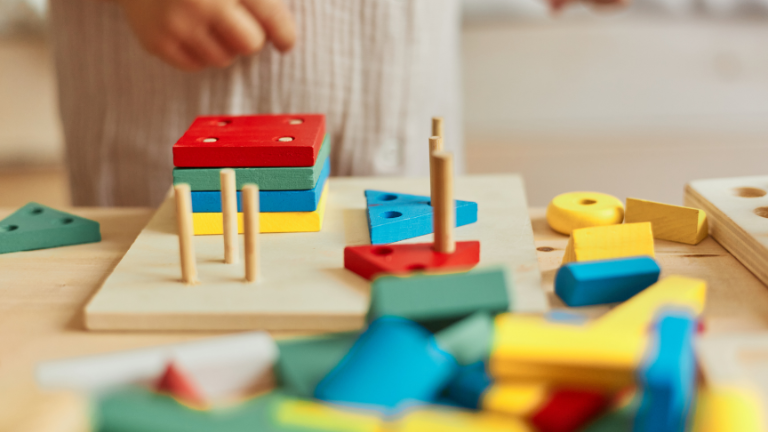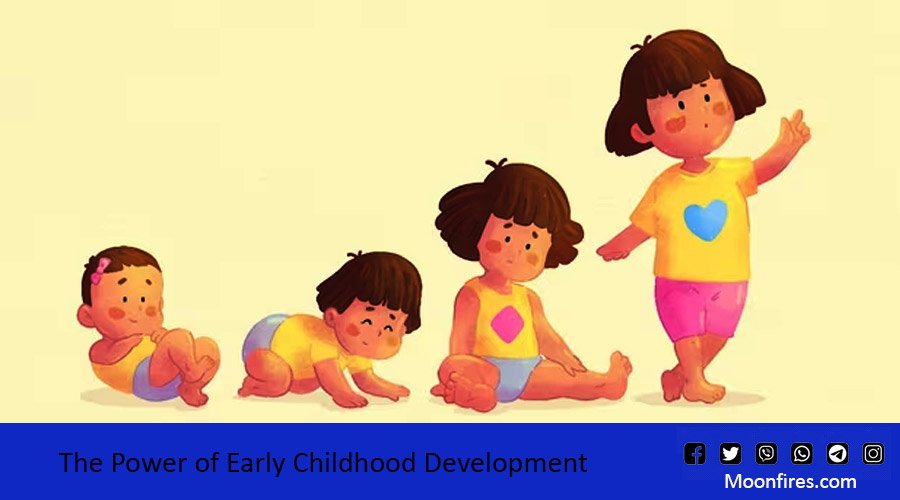“Unlocking Potential: The Power of Early Childhood Development” underscores the pivotal role of early childhood experiences in shaping individuals’ lifelong outcomes. It emphasizes the critical period during which a child’s brain undergoes rapid development, laying the foundation for learning, behavior, and health throughout their lives.
Investing in early childhood development programs and initiatives is vital for promoting equity, fostering resilience, and maximizing human potential. By prioritizing early interventions and support, societies can empower children to thrive and contribute positively to their communities and the world at large.
Here are some additional thoughts:
- Target audience: If you have a specific audience in mind, you might consider tailoring the title slightly. For example, if you’re writing for policymakers, you could emphasize the economic benefits of early childhood development. For parents, you could focus on the personal benefits for their children.
- Specificity: Depending on your content, you could add a tagline or subtitle to provide more specific information about what “unlocking potential” means in the context of early childhood development.
Overall, “Unlocking Potential: The Power of Early Childhood Development” is a strong title that effectively communicates the importance of this topic.

The child when is in preschool, gets a company of children with the same age group. The creative skills, social skills along with his talent into various activities like dance and play are developed. The child is organised in discipline, social habits and physical health. Although a child learns how to talk while at home, in preschool due to continuous interaction and exposure with children of same age group and with teachers help, they are “Early childhood” is defined as occurring before the age of eight, and it is during this period that a child goes through the most rapid phase of growth and development. Their brains develop faster than at any other point in their lives, so these years are critical. The foundation for their social skills, self-esteem, perception of the world and moral outlook are established during these years, as well as the development of cognitive skills.
Children’s experiences in their first years have a profound impact on the course of the rest of their lives. Children’s early experiences — the bonds they form with their parents and their first learning experiences — deeply affect their future physical, cognitive, emotional and social development.
The role of teacher in educational system is not only imparting merely knowledge to students but to develop the new generation as responsible citizens of future. Teachers teach in many ways including lectures, group activities and hands on learning activities. Children are deeply affected by the teacher’s love, care and affection. The emotional, social and physical development of young children has a direct effect on their overall development and on the adult they will become.
Children construct their understanding of the world through their active involvement and interactions. The following four are cognitive development stages:
1) Sensory Motor Stage: (Ages :- birth – 2 years):
The infant uses his senses and motor abilities to understand the world. by this stage, infants progressively construct knowledge and understanding of the world by coordinating experiences (such as vision and hearing) with physical interactions with objects (such as grasping, sucking, and stepping).
Infants gain knowledge of the world from the physical actions they perform within it.By the end of the sensorimotor period, children develop a permanent sense of self and object.
2) Pre-operation: (Ages 2 – 7 years):
The child uses metal representations of objects and is able to use symbolic thought and language. This stage is split into two substages: the symbolic function substage, and the intuitive thought substage. The symbolic function substage is when children are able to understand, represent, remember, and picture objects in their mind without having the object in front of them. The intuitive thought substage is when children tend to propose the questions of “why?” and “how come?” This stage is when children want to understand everything.
3) Concrete operation: (Ages 7 ~ 11 years) :
The child uses logical operations or principles when solving problems. It is characterized by the appropriate use of logic. During this stage, a child’s thought processes become more mature and “adult like”. They start solving problems in a more logical fashion.
4) Formal operation: (Ages 12 years up):
The use of logical operations in a systematic fashion: and with the ability to use abstractions. Children tend to think very concretely and specifically in earlier stages, and begin to consider possible outcomes and consequences of actions. Problem-solving is demonstrated when children use trial-and-error to solve problems.
At Little Wings International, established by Dr.Kanchan Nasre, the aim of our curriculum is to nurture children with effective early childhood education and make a difference in the lives of children and families. The philosophy is inspired by Jean Piaget and Glenn Doman, and Harward Gardner, providing holistic child centric, integrated and nurturing learning environment. Within a short span of time, the school has been able to provide best early education program and childcare facility. The important features are nurturing the whole child, developing positive attitude towards learning and laying the foundation for lifelong learning.
The school has a team of experienced and skilled teachers who teach students in innovative and playful ways so that they become lifelong learner. The focus iS On cognitive and social development by stimulating a child’s curiosity and imagination. The play-based curriculum focuses on literacy, math, science, social and emotional skills, and physical development. Classrooms are designed to inspire young learners, capturing each child’s interests, ideas, and independence to encourage a growing awareness of self. The school prepares students for their future by continually monitoring their readiness for new learning challenges.
Children learn to take care of themselves and help others. Teachers help a child’s desire to engage in real work by offering him chance to help out in classroom. Teachers use children’s interests and ideas to create activities to nurture the curiosity of children and their motivation to learn. With the help of group activities such as “circle time,” children learn to focus attention on the teacher, listen while others are speaking, and wait for their turn to talk. Children learn to wash their hands before meal time and put away toys before moving to a new activity.
We, at Little Wings International, have Colour Day celebrations, festival celebrations arranged for the children. Along with this, there are programs arranged for the child’s family like Grandparents’ Day, Women’s Day and Father’s Day. Besides the celebration of festivals and important days, we find it essential that the children understand the meaning of these festivals and days. This also helps us to build a bond with the child’s family.
Our teaching aids play a vital role in curriculum as they help in keeping the children enthusiastic about the learning concepts. These teaching aids being available in different colours and sizes make learning a fun filled experience for children and helps in improving their concentration as well as reading, writing and grasping skills. It also makes the classroom lively and interactive. Hand-made or printed educational charts and flash cards are used for teaching colours, numbers and alphabet.
Little Wings International is an organization that values people: the children in our care, their parents. and our employees. We continually work to earn the trust placed in us and strive each day to be the best providers of early childhood education in the community we serve.






 If you want to use your preferred UPI app, our UPI ID is raj0nly@UPI (you can also scan the QR Code below to make a payment to this ID.
If you want to use your preferred UPI app, our UPI ID is raj0nly@UPI (you can also scan the QR Code below to make a payment to this ID.






